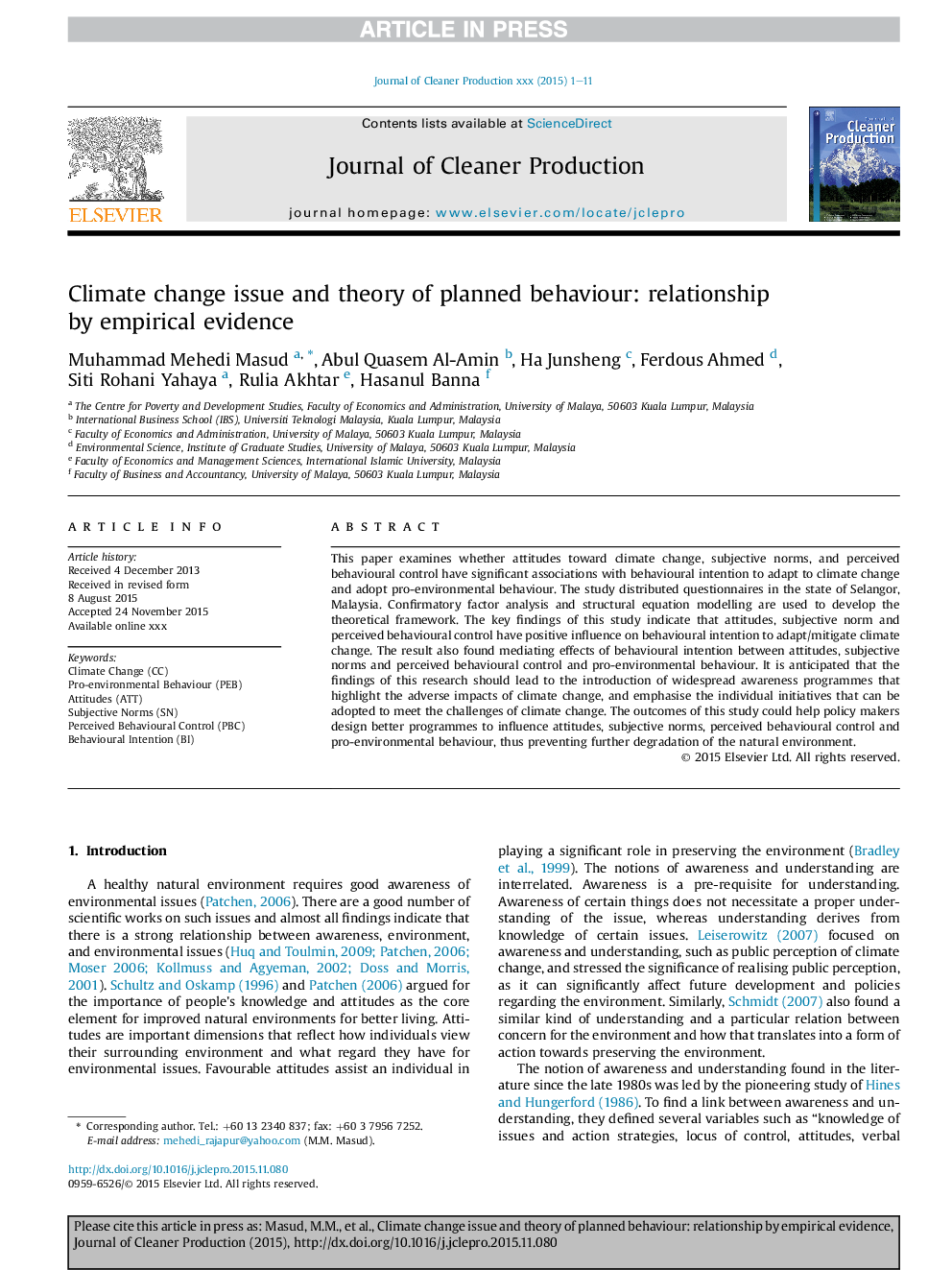| Article ID | Journal | Published Year | Pages | File Type |
|---|---|---|---|---|
| 8102972 | Journal of Cleaner Production | 2016 | 11 Pages |
Abstract
This paper examines whether attitudes toward climate change, subjective norms, and perceived behavioural control have significant associations with behavioural intention to adapt to climate change and adopt pro-environmental behaviour. The study distributed questionnaires in the state of Selangor, Malaysia. Confirmatory factor analysis and structural equation modelling are used to develop the theoretical framework. The key findings of this study indicate that attitudes, subjective norm and perceived behavioural control have positive influence on behavioural intention to adapt/mitigate climate change. The result also found mediating effects of behavioural intention between attitudes, subjective norms and perceived behavioural control and pro-environmental behaviour. It is anticipated that the findings of this research should lead to the introduction of widespread awareness programmes that highlight the adverse impacts of climate change, and emphasise the individual initiatives that can be adopted to meet the challenges of climate change. The outcomes of this study could help policy makers design better programmes to influence attitudes, subjective norms, perceived behavioural control and pro-environmental behaviour, thus preventing further degradation of the natural environment.
Related Topics
Physical Sciences and Engineering
Energy
Renewable Energy, Sustainability and the Environment
Authors
Muhammad Mehedi Masud, Abul Quasem Al-Amin, Ha Junsheng, Ferdous Ahmed, Siti Rohani Yahaya, Rulia Akhtar, Hasanul Banna,
